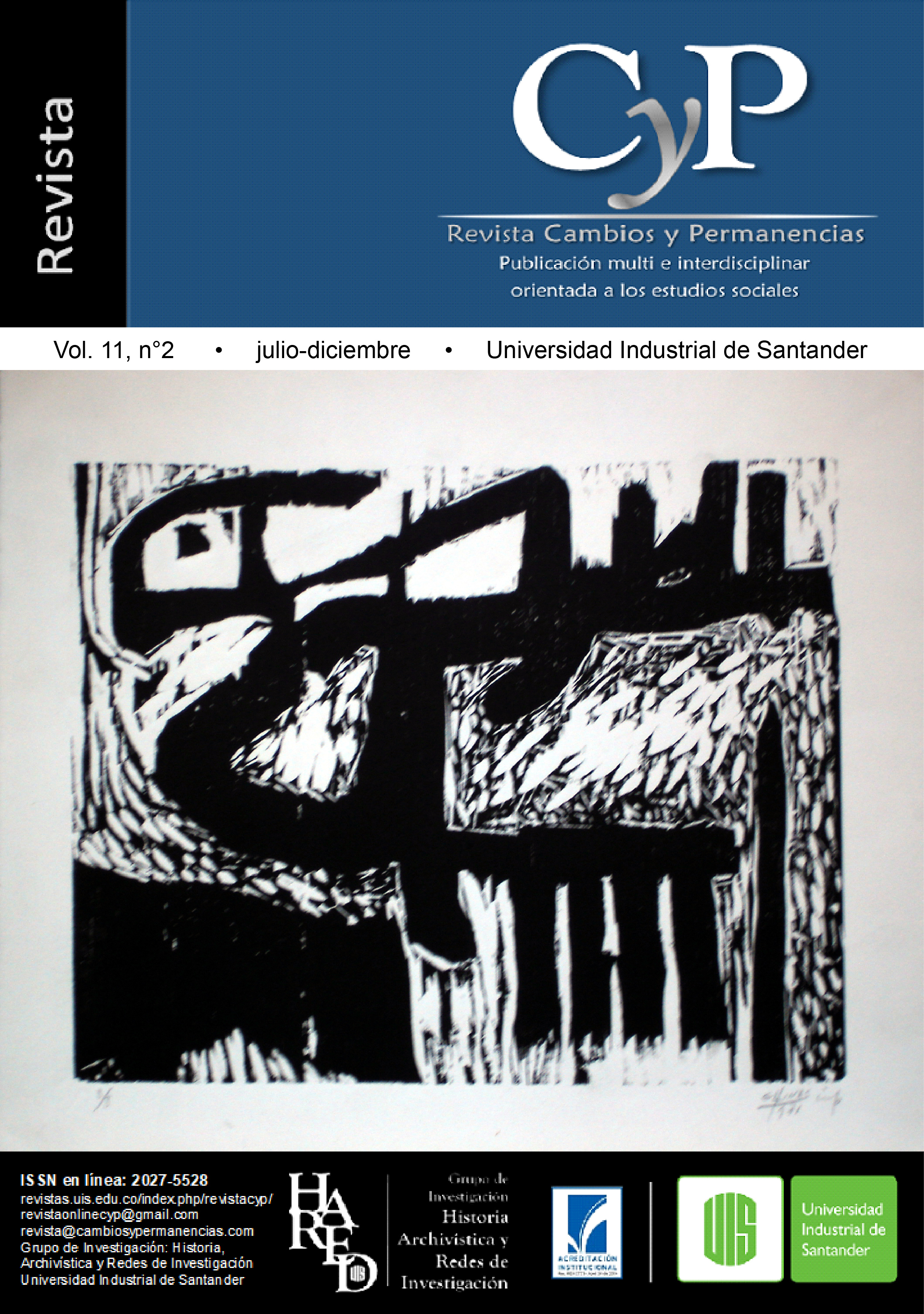Clearing the way by challenging social order proactively: catholic laypersons missionaries in the Colombian frontier in the mid twentieth century
Published 2020-12-16
Keywords
- catholic civic organizations,
- women and gender studies,
- Colombia,
- oral history
How to Cite
Abstract
This paper deals with the initial development of the Unión de Seglares Misioneros (Laypersons Missionaries Union), a catholic civic organization which has worked in rural and indigenous regions in Colombia since the mid twentieth century, formed mainly by women. Based primarily on the testimony of one of Usemi’s founding members, Sofía Toro Isaza, we follow their trajectory facing different sociocultural obstacles concerning their status as women: in particular, local society prejudice in Medellín (where many of Usemi’s members were raised), and the rules and customs of the catholic church in Europe and Colombia, including, at a certain point, that of its main supporter. Thus, the autonomy with which Usemi has operated derives from clearing a path, that until then, was mainly unheard of in Colombia. In theoretical terms, the differences between Usemi, on one hand, and certain sectors of both colombian society and the Church are understood as the frictional encounter between two different paradigms (a concept drawn from Victor Turner’s symbolic action theory (1974)), related to the status of catholic laywomen in Colombia.
Downloads
References
Coordinación de Pastoral de la VIII Región Pastoral del Perú (1976). Éxodo de la Iglesia en la amazonia. Lima, Perú: Ediciones Paulinas.
Córdoba Restrepo, J. F. (2012). En tierras paganas. Misiones católicas en Urabá y en La Guajira, Colombia, 1892-1952 (Tesis de Doctorado en Historia). Facultad de Ciencias Humanas, Departamento de Historia, Universidad Nacional de Colombia, Bogotá, Colombia.
Douglas, M. (1992). Risk and blame. Londres y Nueva York, England, EE. UU.: Routledge.
Fox, J. (2007). Accountability politics: power and voice in rural Mexico. Oxford, England: Oxford University Press.
García Sánchez, J. (1976). “Presentación” en Coordinación de Pastoral de la VIII Región Pastoral del Perú. En Éxodo de la Iglesia en la amazonia (pp. 27-34). Lima, Perú: Ediciones Paulinas.
Hernández Mora, S. (2016). La misionera gringa que desbancó a la Iglesia Católica. El Tiempo. Recuperado de http://www.eltiempo.com/colombia/otras-ciudades/sofia-mueller-la-misionera-gringa-que-desbanco-a-la-iglesia-catolica-31095
Jaramillo González, G. (2008). El obispo de los pobres. Una biografía de Monseñor Gerardo Valencia Cano. Medellín, Colombia: Seminario de Misiones Extranjeras de Yarumal.
Necoechea, G. (2005). Después de vivir un siglo. Ensayos de historia oral. México: INAH.
Turner, V. (1974). Dramas, fields and metaphors. Ithaca y London, England, EE. UU.: Cornell University Press.

